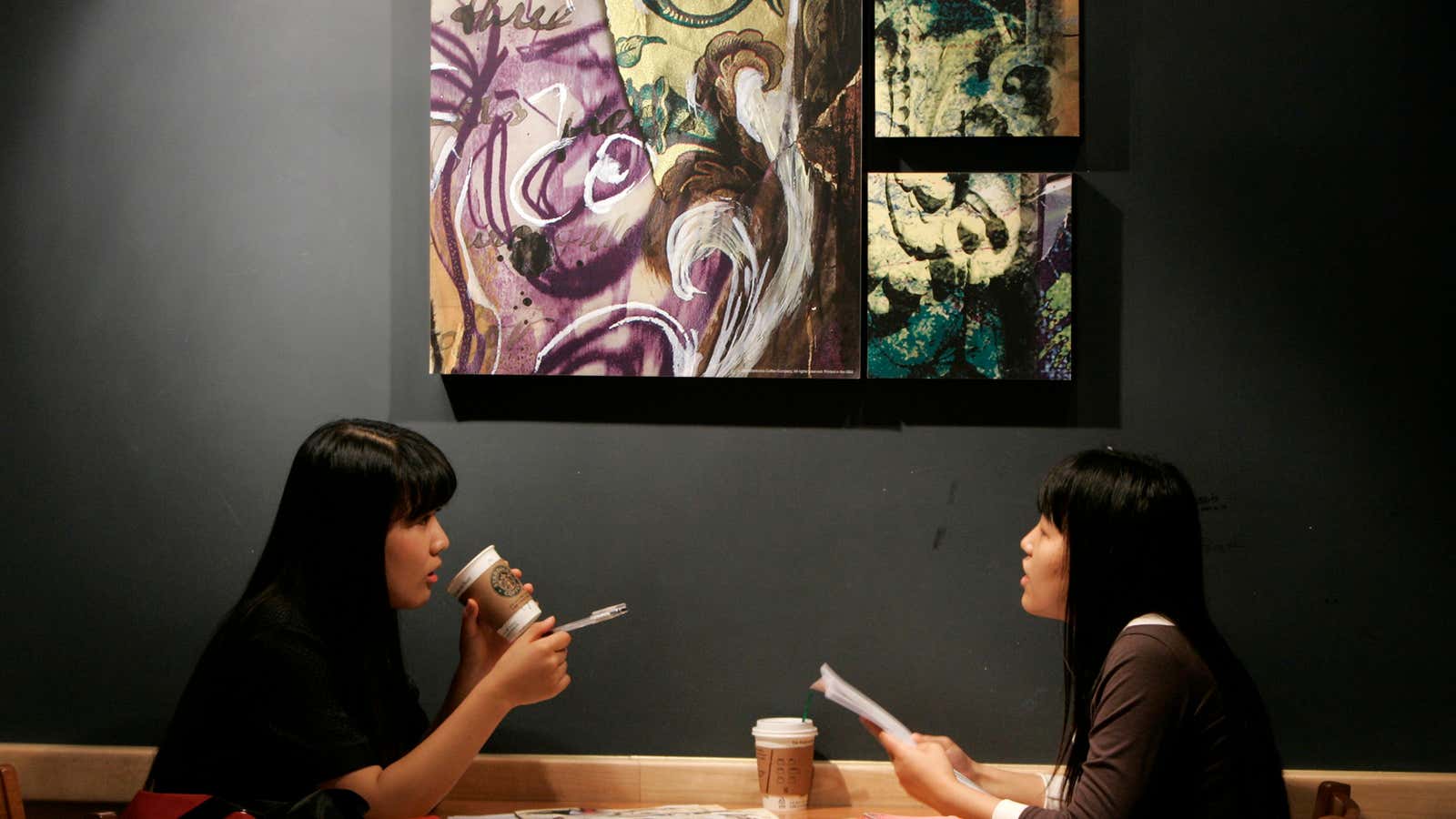This item has been updated
The international coffee chain Starbucks often touts its relatively egalitarian culture, where employees are called “partners” and get equity in the company, regardless of their job function. That philosophy plays out in an unusual way in South Korea, where employees are all required to have English nicknames on their name tags instead of their employment rank, according to The Korea Times. Examples given include the fairly pedestrian “Kat” and “Adele”—but also coffee-themed monikers such as ”Bean” and “Fresh.”
“Among partners, nicknames are preferred over formal titles such as ‘boo-jang-nim’ (manager) or ‘dae-li-nim’ (mid-level manager),” Starbucks’ Korea public relations manager Park Han-jo told the Korean paper. “This horizontal name culture creates a more natural environment for our partners and is part of an evolving culture that considers everyone from our customers to our partners.”
We reached out to Starbucks to ask whether this practice is unique to Korea or practiced in other markets, and will update this post if we hear back.
The practice seems to be an effort to push past Korea’s management culture, which tends to be intensely hierarchical and very formal. But employees may not necessarily be on board. The Korean telecom KT Corp. did away with the formal titles and rigid reporting structure in favor of a flatter model in 2009. After a few years, the company decided to revert back to the old ways—with the wholehearted support of its employees.
Seoul has more Starbucks locations than any other city in the world, with 284—so that’s a whole lot of nicknames.
Update (6/30/2014): Starbucks responded with this comment:
Starbucks does not require partners (employees) in South Korea to have English nicknames on their name tags, however, our South Korean partners wear nametags and most of them choose to include their English nicknames on their nametag as a friendly practice.




